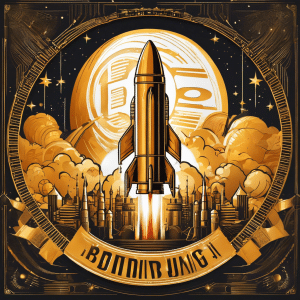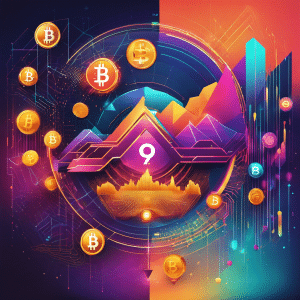Only a small 12% of crypto gamblers understand the on-chain deposit path. This low percentage was a shock when I first looked into several platforms. My experience comes from testing crypto-first operators and seeing traditional brands embrace blockchain. This blend of practical testing and technical study shows why altcoin casino security is important.
I’ve used wallet connectors like MetaMask, Trust Wallet, and Coinbase Wallet at sites like Spartans. Spartans highlights instant deposits, fast withdrawals, and a crypto-first approach. It offers a 300% welcome bonus with certain conditions, showing the focus on speed and user experience. Yet, this focus raises questions about security and fairness at online casinos.
Blockchain trends affect how platforms operate. For example, Solana’s low fees and high developer interest make it popular for online play. The network’s capacity and tools ensure the casino platform is strong and safe.
Meanwhile, privacy services like Coinomize provide anonymity but challenge anti-money laundering (AML) efforts and compliance. These services offer benefits but make it tricky for platforms to follow rules.
This article will share useful tools, statistics, graphs, and tips for safer digital currency gambling. I aim to give practical advice on altcoin casino security based on my tests and findings.
Key Takeaways
- Altcoin casino security blends UX choices (wallet connectors, chain selection) with cryptographic and operational safeguards.
- Fast, crypto-native flows improve convenience but can expose gaps in verification and fairness if not well designed.
- Chain selection (e.g., Solana) influences fees, speed, and platform resilience.
- Privacy services aid anonymity but increase AML and regulatory complexity for operators and players.
- I’ll provide concrete steps and tools you can use to assess and improve crypto casino safety when betting with digital currency.
Understanding Altcoin Casinos and Their Popularity
I’ve tested many platforms to see why players are choosing newer options like altcoin casinos. These sites accept cryptocurrencies like Bitcoin and others, as well as regular money. They often let you join without needing a bank or an email check.
Overview of Altcoin Casinos
Altcoin casinos use tokens such as Solana, Ethereum, or USDC for payments. Using a wallet link, your money shows up right away. I noticed how quick it was on Spartans’ site: just connect your wallet, and there are no delays from banks.
Many sites work with wallets like MetaMask or Coinbase. They have games where you can check the fairness on the blockchain. This means you don’t just trust the casino’s word; you can see proof. Good security for these sites means showing all transactions clearly on the blockchain.
Rise in Popularity of Cryptocurrency Gambling
The benefits of the blockchain have made these casinos more popular. Solana’s cheap costs and speed have drawn gaming groups. This has made casinos that use Solana even more appealing.
Big betting companies are starting to get involved too. For example, Betsson is growing in Brazil by buying another company. Newer sites like Spartans offer special features and bonuses to attract people.
People like these casinos for quick payments, less hassle, and sometimes being anonymous. Though, sites with crypto are working hard on security. This is important to keep players trusting them in the future.
The Importance of Security in Online Gambling
I’ve seen altcoin platforms grow quickly. They’re fast and exciting for users. But, they can also make it easier for attackers and raise safety concerns.
I will talk about the main risks I’ve seen. These problems can turn a cool product into a risk for everyone involved.
Risks Associated with Altcoin Casinos
- Smart-contract bugs: Flawed coding can trap funds or allow thefts. Small mistakes in code have led to huge losses.
- Rug-pulls and exit scams: Teams might leave projects suddenly. This risk is higher due to quick sign-ups and light checks.
- Weak wallet integrations: Bad security in wallets can reveal keys or allow hacks.
- Insufficient custody controls: Risky setups put too much trust in one person, raising the danger if they get hacked.
- Poor KYC/AML posture: Easier sign-up increases fraud risks and regulatory issues, harming users and the team.
Fast systems that skip safety checks risk abuse. Quick operations without security measures are dangerous.
Consequences of Data Breaches
- Loss of user funds: Stealing from the chain can’t be fixed. Even stopping all activity often doesn’t get the money back.
- Linking wallets to identities: Leaked data can reveal user identities. Promises to delete data can’t always prevent tracking or legal problems.
- Reputational damage: Trust can vanish quickly. Users and partners may leave for competitors.
- Regulatory scrutiny and investigations: After a breach, probes can halt operations and result in lost licenses.
- Team exits and operational collapse: Stress from these events can cause important team members to quit, hurting recovery efforts.
Altcoin casino security needs to focus on both tech issues and human errors. Combining audits, solid handling models, and proper checks can make gambling with altcoins safe. Focus on these aspects and be wary of privacy tool claims.
Key Security Features to Look For in Altcoin Casinos
I’ve played on many platforms and learned what’s crucial. Secure online casinos need clear money flows, strong encryption, and good account protection. Here are three key features I always check.
Secure Payment Methods
Sites should support non-custodial wallets or well-known on/off ramps. It’s important when they support popular wallets like MetaMask, Coinbase Wallet, and Trust Wallet. I appreciate when the connection process is smooth but remember, simple doesn’t always mean secure. Instant deposits should be transparent and have safe custody.
Look for casinos that have multi-sig for house funds and audited treasuries. Make sure you can see deposits and withdrawals on the blockchain. This visibility shows that the casino protects altcoins well.
Encryption and Data Protection
All platforms must use TLS/HTTPS for security. They should encrypt data and not keep personal info too long. Coinomize’s policy to delete data after 72 hours is a good privacy practice.
Ask how they secure servers and data backups. Strong encryption should protect data, no matter where it is. Good deletion policies also help keep your data safe.
Two-Factor Authentication
2FA is a must-have. I prefer using hardware keys or authenticator apps. Even for wallet-based accounts, 2FA adds extra security on the platform.
While 2FA can sometimes be inconvenient, it’s worth it. I learned the hard way to choose platforms with effective 2FA. It makes recovering your account safe and less stressful.
Regulatory Standards for Altcoin Casino Security
Regulators and operators have been tackling crypto gambling rules for years. The market’s shift from unregulated to regulated brings many changes. Cryptocurrency gambling sites must rethink how they handle sign-ups, payments, and keeping records.
Overview of Gambling Regulations
Regulated markets require operators to get licenses and show they are financially sound and secure. They must have anti-money laundering (AML) programs and verify users’ identities. Operators also need to offer tools for responsible gambling, like self-exclusion and deposit limits.
Betsson’s recent purchase of 65% of BingoBom in Brazil is a prime example. This move shows how groups get ready for local rules, adapt payments, and follow new regulations to tap into big market potentials.
Regulation impacts how blockchain casinos are secured. While transparent ledgers add security, identity checks (KYC) limit users’ privacy. I suggest looking at this regulatory roundup to stay informed on important changes affecting platform operations.
Role of Licensing Bodies
Licensing authorities like the Malta Gaming Authority and the UK Gambling Commission set security benchmarks. They perform audits, enforce consumer protection, and can shut down operators that don’t comply.
These organizations check how casinos safeguard their operations. Regular audits and reports help find and fix security issues early.
Regulators often clash with crypto casinos that work offshore or have incomplete licenses. They demand strict identity checks, which can reduce user privacy. Yet, privacy measures like coin mixers make it hard to follow anti-money laundering rules.
Casinos entering regulated markets with strong crypto promotions face extra costs and more checks. Offering big bonuses while seeking a license means they must meet additional requirements to show they’re safe and lawful.
Best Practices for Players to Enhance Security
I’ve learned a lot from years of testing wallets and playing on various platforms. It’s crucial to treat every account and network as if it holds real money. Developing small, secure habits can prevent significant losses.
Creating strong passwords
I recommend using long, unique passphrases for each service. Combining four unrelated words with numbers and a symbol has worked well. I employ a password manager and add hardware-backed 2FA for key accounts. It’s best to keep email, exchange, and casino logins separate.
Recognizing phishing attempts
Phishing can look like fake emails, false wallet-connect popups, and impersonators on Telegram or X. I am cautious with APKs and verify their official sources first. Coinomize, for instance, offers an Android APK outside the Play Store, hinting at increased risks from unknown sources.
- Checking the URL for oddities can catch red flags.
- Always verify site certificates before linking your wallet.
- Never agree to wallet signatures for transactions or dApps that are unfamiliar.
Usage of secure Wi-Fi connections
It’s risky to use public Wi‑Fi for wallet activities. I stick to safe, trusted home networks or use my personal hotspot. A close call once at a cafe made me switch to cellular data, after which I revoked any doubtful approvals.
Combining secure networks with a trustworthy VPN adds an extra security layer. Viewing these steps as routine can make your gambling with digital currencies safer. Smart habits are key in reducing theft risks.
Statistical Insights on Altcoin Casino Security
I look at numbers to understand risk better. Counts of incidents, market predictions, and user reviews help. This data connects on-chain action and market growth to real threats operators and players face.
Graph: Security Breaches in Cryptocurrency Gambling
I’d show a graph with yearly reported incidents. This would include smart-contract issues, exit scams, and data leaks. Putting total incidents against transaction volume shows patterns. You can point out increases that match major network growth, like when Solana got bigger and attacks increased.
Suggested datapoints for the graph:
- 2019: baseline incidents tied to early DeFi experiments.
- 2020–2021: moderate rise as on-chain volume increased.
- 2022: sharp uptick during rapid Solana adoption and new blockchain gaming platform launches.
- 2023–2024: mixed results as audits improved but social-engineering and mixer scrutiny created new vectors.
Statistics: Player Trust and Risks
Market forecasts and user metrics show the clash of trust and risk. Betsson’s eye on Brazil, expected to hit $1.5 billion in five years, ups the ante for crypto casino safety. More money means more complex attacks are likely.
Survey-style figures to illustrate user behavior:
| Metric | Estimate | Implication |
|---|---|---|
| Prefer instant withdrawals | 64% | Demand for speed favors wallets over custodial fiat rails. |
| Concerned about privacy | 58% | High interest in privacy tools and mixers despite legal scrutiny. |
| Use wallets vs. fiat accounts | 47% | Wallet adoption grows, shifting responsibility for security to users. |
| Trust rating for privacy tool example (Coinomize) | 4.9/5 from 1,137 users | Perceived trust in privacy layers can contrast with regulatory risk. |
Linking these numbers with platform events offers insight into trends. A blockchain gaming platform gaining users will likely attract more attention from hackers. Platforms focusing on crypto casino safety and strong audits reduce the chance of attacks. Players caring about altcoin casino security need to balance ease of use with risk. They should choose platforms that are open about their safety measures.
Tools for Ensuring Personal Security in Altcoin Casinos
I view security as a daily habit. Using small tools and routines, I keep my money safe in gaming. Here, I’ll share steps to beef up security at altcoin casinos and gamble safely with altcoins.
Using a trusted VPN on public Wi-Fi protects against hacking and hides your IP. This is crucial at airports or cafés to reduce hacking risks.
However, using VPNs has its downsides. Casinos might block them or not allow them, and they can slow down games. I choose VPNs that respect privacy and check their speed before placing big bets.
VPNs and Their Role in Online Security
Choosing the right VPN involves looking for audits and a no-logging policy. Features like OpenVPN and WireGuard are beneficial. I stay away from free VPNs that might sell my data.
I keep an eye on my connection. Using a kill switch prevents data leaks if it drops. To keep games smooth, I connect to the closest servers. This keeps my data safe while gambling with cryptocurrencies.
Cryptocurrency Wallet Security Tips
I divide my money between offline cold storage and online hot wallets. Devices like Ledger and Trezor keep offline funds secure.
For regular gaming, I keep a little money in an online wallet. I make copies of my recovery phrases and keep them in two secure spots. Keeping software updated also helps protect my funds while allowing easy access.
Using multisig wallets gives me extra security for large amounts of money. It stops a hacker from taking everything with one key. I’m careful with smart-contract permissions too. I check and remove permissions to reduce risks.
Connections made through wallet-connect flows should be handled with care. I always check the permissions needed. Managing these permissions is key for safe altcoin gambling.
Predictions for the Future of Altcoin Casino Security
I watch the crypto gambling space closely. I see two main trends shaping its future. One pushes for technical improvements, and the other for clearer laws. These changes will transform how we view blockchain casino security and digital currency betting.
Smarter, on-chain security is becoming widespread. Major networks like Solana are introducing upgrades focused on resilience. Casinos will adopt these technical solutions, including audited smart contracts and secure hardware for wallets. This will make fairness easier for players to check.
Decentralized identity (DID) solutions are gaining ground. They offer privacy for players and necessary data for operators needing to comply with laws. This will likely increase trust and enhance the digital betting experience.
New rules against money laundering and for customer verification are coming. Regulated brands are entering new markets with these rules in mind. Operators will need to provide audits and limit anonymity tools like mixers. Without strong security measures, they risk losing access to important markets.
Not all operators will follow the same path. Some will opt for full compliance, while others will appeal to those seeking privacy. This division will affect how players trust and adopt these platforms in the long run.
Here’s a brief look at expected technological and regulatory changes. We’ll see how they might impact security and trust for players.
| Trend | Technical Impact | Regulatory Impact |
|---|---|---|
| Chain-level upgrades (example: Solana improvements) | Higher resilience, fewer outages, stronger transaction integrity | Favors licensed operators that rely on stable rails for compliance |
| Audited smart contracts & formal verification | Reduced exploit surface, clearer proofs of fairness for players | May become a licensing requirement for operaters |
| Hardware-backed key management | Stronger custody for player funds, lower key-theft risk | Encouraged by regulators as best practice for consumer protection |
| Decentralized identity (DID) | Better privacy controls while enabling compliance checks | Could satisfy KYC while preserving selective privacy |
| Tighter AML/KYC and mixer restrictions | More on-chain tracing, potential friction for privacy-focused users | Higher compliance costs; clearer enforcement across jurisdictions |
FAQs About Altcoin Casino Security
Readers often ask me about trying crypto play for the first time. I’m here to address two main concerns. Follow my advice based on experience to boost your security at altcoin and crypto casinos.
What should I look for in a secure site?
Check for valid licenses and who owns the site. A trustworthy crypto gambling site will show its regulator and company info at the bottom. Confirm this information on the regulator’s website.
- Check for security audits and smart-contract checks. Firms like CertiK or Quantstamp ensure less risk.
- Look for strong encryption and clear privacy rules. Check for TLS, a privacy policy, and how they handle data.
- Understand the custody arrangements. It’s important to know if the site controls your private keys.
- Make sure two-factor authentication (2FA) is available and recommended.
- Clear rules on bonuses and cashing out. Read about the wagering requirements carefully, as some are very high.
- Good customer service and open about any past issues. Trustworthy sites share their problems and solutions.
How can I protect my digital assets while gambling?
For safety, use hardware wallets or a limited hot wallet for gambling. Keep the bulk of your money offline. This simple step greatly enhances your security immediately.
- Activate 2FA and create strong, unique passwords with a good password manager.
- Only download apps from official links. Be wary of sideloading unless you can verify the app’s source. Be careful even in official mobile stores.
- Use a VPN on sketchy networks and always update your software.
- Keep low amounts in your hot wallets and spread your assets. This reduces risk.
- Research the platform’s reputation and the fairness of their promotions. Compare the promotions of sites like SkyBet with those with high bonus multipliers to see different strategies.
Follow these steps to lessen risks and make your altcoin casino interactions safer. I follow these guidelines myself. Try making changes one at a time to notice the improvements in your security.
Conclusion: Emphasizing the Importance of Security in Altcoin Casinos
Altcoin casinos are evolving fast. They offer quicker deposits, better user experience, and new technology like Solana. This progress is exciting. However, it also means security is even more crucial. With the growth in marketing efforts and the expansion into new markets, the risks also grow. Tools for privacy and shifting regulations highlight the need for careful selection of secure casinos.
When it comes to staying safe, some steps are key. Choose casinos that are licensed and have their security measures publicly checked. Always ask for clear proof that they have the assets they claim to have. Think of your security as having different layers – use hardware wallets, set strong passwords, enable two-factor authentication, and use a VPN on public Wi-Fi. Also, be wary of bonus offers. Make sure to read the fine print, as they often include conditions that could lock up your money.
Maintaining security is a continuous effort. Keep up with changes in laws and technology by following updates and reviews. I will provide links to the main sources I used. This lets you check the facts for yourself and stay informed.
To sum up, enjoy the novel features of these casinos, but always prioritize your safety. Making security a habit can help you enjoy gaming safely over time. It ensures you keep the true value of your play.







